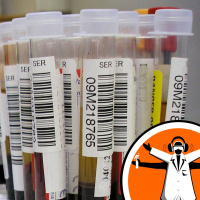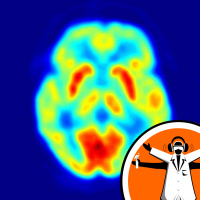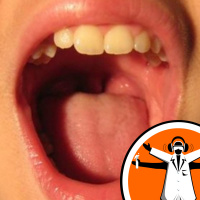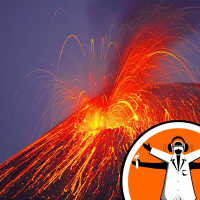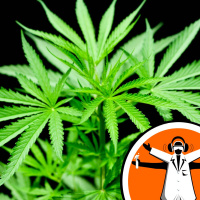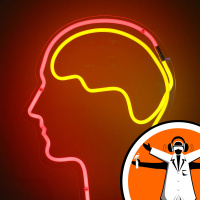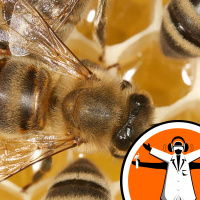Sinopsis
Probing the weird, wacky and spectacular, the Naked Scientists Special Editions are special one-off scientific reports, investigations and interviews on cutting-edge topics by the Naked Scientists team.
Episodios
-
Lovey-dovey finches
17/09/2015 Duración: 04minPeople can spend their lives looking for love. We go on awkward dates and let our friends set us up with complete strangers. All in the hope of finding 'the one'.But what's the point of it all? Why do we bother? If all we're supposed to do is continue our species surely we're better off just picking someone half-decent and making do.Now scientists in Germany have found that, for zebra finches at least, there is a point to love... Like this podcast? Please help us by supporting the Naked Scientists
-
Age related diseases associated with 'biological age'
14/09/2015 Duración: 04minEarly intervention is likely to be critical for preventing many age-related diseases; but detecting these diseases at a sufficiently early stage to make a difference is often problematic. Now this may be about to change, because scientists in the UK have identified a molecular signature present in our cells that corresponds to our biological age - in other words, how well "lived in" our bodies are. Joanna Kerr spoke with researcher James Timmons to hear how it works... Like this podcast? Please help us by supporting the Naked Scientists
-
Dusty farms protect children from allergies
05/09/2015 Duración: 04minA well known benefit of growing up on a farm is the reduced chance of developing allergies. Evidence shows that children who are exposed to a dusty farm environment from an early age have fewer allergies than those who don't. Now researchers have discovered that it is a special property of the dust found on dairy farms which protects the lungs from allergies. Sam Mahaffey spoke to Professor Bart Lambrecht from Ghent University to find out more Like this podcast? Please help us by supporting the Naked Scientists
-
Green Highways
26/08/2015 Duración: 03minThis month, Cambridge based company Innovia Technology have taken charge of the "Mission Zero Corridor Project". This project aims to make a 12 mile stretch of highway in West Georgia completely sustainable, with no carbon footprint! This will be the first road of its kind, and hopefully will encourage others to jump on the carbonneutralbandwagon. The project is inspired by Ray C Anderson, the late CEO of a carpet manufacturing company in the USA. He aimed to reduce the carbon footprint of his company to zero a target they are on track to achieve by 2020. Andy Milton from Innovia Technology,... Like this podcast? Please help us by supporting the Naked Scientists
-
Keeping clocks accurate
25/08/2015 Duración: 02minGetting accurate clocks is really important for all kinds of technologies, especially when monitoring the distant heavens. But even if the clock itself is accurate, how do you know that the right time is being transmitted across to other devices, so for example telescopes? David Gozzard from the University of Western Australia has found a new way to make sure that disturbances in the transmission from a clock are accounted for, meaning that multiple high-precision clocks aren't needed. He was speaking about his work at the Perth Science Festival, and Georgia Mills wasted no time in finding out... Like this podcast? Please help us by supporting the Naked Scientists
-
Hidden memories explained
24/08/2015 Duración: 04minIt's long been known that traumatic memories forged in stressful situations can lie buried in the subconscious, yet they can bubble to the surface unexpectedly, triggering strong reactions, flashbacks and more serious psychological problems such as post-traumatic stress disorder, or PTSD. Researchers have discovered that memories made under such conditions - or under the effects of drugs or alcohol - tend to only be recalled when a person is back in that state again: something known as state-based learning. By putting mice under the influence of a drug called gaboxadol, a team of scientists... Like this podcast? Please help us by supporting the Naked Scientists
-
Dogs evolved with climate change not prey
23/08/2015 Duración: 03minIn the UK we are a nation of dog lovers but how did man's best friend become the speedy, bouncy animal we know today? Well for a long time it has been thought that dogs got faster as their prey did, in a sort of arms race, but new research from Professor Christine Janis and a team at Brown University has shown that actually, long term climate change may have been the key. Connie Orbach finds out more. Like this podcast? Please help us by supporting the Naked Scientists
-
Premature birth affects personality
10/08/2015 Duración: 04minNew research has shown that babies born severely prematurely or underweight are likely to suffer in adulthood with a socially withdrawn personality. Amy Goodfellow met with Professor Dieter Wolke from the University of Warwick to find out more... Like this podcast? Please help us by supporting the Naked Scientists
-
GCSE success: it's in your genes
04/08/2015 Duración: 04minScientists at King's College London have discovered that genetics makes an unexpectedly large contribution to children's GCSE grades across a wide range of subjects. Kat Arney met with Professor Robert Plomin to find out more. Like this podcast? Please help us by supporting the Naked Scientists
-
A pill on a string!
03/08/2015 Duración: 06minAbout 8000 people in the UK develop a cancer in their oesophagus - the tube that connects the back of the throat to the stomach - every year. The majority of these people have detectable changes in the cells lining the oesophagus for many years before they develop the cancer. These changes are referred to as Barrett's oesophagus. But only a minority of people with Barrett's - which is actually relatively common - will actually go on to develop cancer, which makes screening for the disease an expensive headache. Now Rebecca Fitzgerald, a physician from Cambridge, has developed a sponge - packed... Like this podcast? Please help us by supporting the Naked Scientists
-
Can de-worming really improve school attendance?
02/08/2015 Duración: 04minA decade ago a landmark study was published showing that treating Kenyan children for worm infections could increase their attendance at school, as well as bringing health benefits. Since then, many development agencies across Africa have taken the idea on board, as it seems like a cheap, effective and simple way to boost attendance. However,researchers at the London School of Hygiene and Tropical Medicine have been taking a closer look at the original data, and found that the benefits of de-worming may have been overstated, as Alex Aiken explained to Kat Arney. Like this podcast? Please help us by supporting the Naked Scientists
-
Music tastes linked with brain type
31/07/2015 Duración: 04minHow does the way you think influence the music you choose to listen to? Scientists at Cambridge University have developed a test that marries up a person's personality traits including how empathic they are, and how systematically they think, with the tunes most likely to resonate with them. Tom Crawford went to see the lead researcher David Greenberg to discover what the test revealed about his own musical tastes... Like this podcast? Please help us by supporting the Naked Scientists
-
Sugary drinks increase diabetes risk by 20%
30/07/2015 Duración: 04minFizzy drinks are often very high in sugar, and doctors suspect that they're likely to be linked to the growing rates of obesity in many countries. Now, by bringing together data from all of the previously published studies in the world, public health doctor Nita Forouhi has uncovered a strong link between sugary drinks and type 2 diabetes. In fact, as she explained to Amy Goodfellow, regularly consuming one sugar-rich drink boosts your diabetes risk by up to 13 per cent... Like this podcast? Please help us by supporting the Naked Scientists
-
Rocket-powered Punting
30/07/2015 Duración: 04minPunting is one of the most typically 'Cambridge' of activities, with hundreds of tourists being punted lazily along the river Cam at any one point during summer. Now, though, the Cambridge Science Centre has decided to liven things up a little with a rocket-powered punt, running on Chelsea buns from local cafe Fitzbillies. Yes you read that correctly! James Farr spoke to John London, the world's first 'punt-onaut' Like this podcast? Please help us by supporting the Naked Scientists
-
Growing Human Hearts
23/07/2015 Duración: 03minGrowing a human heart from a single cell may seem like science fiction, but scientists at the Gladstone Institute at the University of California San Francisco, have taken a huge step forward, by producing the first three-dimensional, beating, human heart chamber. Previously, it had been possible to produce a two dimensional sheet of beating heart cells, but to really gain an understanding of heart formation in a developing foetus and perhaps more importantly, how drugs given to women during pregnancy may affect this development, a three dimensional structure was needed. By treating stem cells... Like this podcast? Please help us by supporting the Naked Scientists
-
Volcanoes may have ended the Roman Empire
16/07/2015 Duración: 04minVolcanic eruptions can be both beautiful and destructive at the same time, but now scientists have found evidence they may have also been linked to plagues, and even the fall of the Roman Empire. When a volcano erupts, chemicals are released into the atmosphere in huge quantities, which reflect light away from the earth and therefore cause climate change, in the form of summer cooling. These chemicals are also locked away in the ice, providing a snapshot of the time of an eruption. Now scientists have dated the ice cores, and the records of summer cooling, from tree rings and have found they... Like this podcast? Please help us by supporting the Naked Scientists
-
Benefitting medically from marijuana
14/07/2015 Duración: 04minMarijuana has a reputation for helping people who are in pain. But achieving the analgesic effect comes at a cost: users of the drug complain of memory loss and mood disturbances. Now, by identifying the pathway in the brain that is responsible for these psychoactive side effects, University of East Anglia researcher Peter McCormick has found that in experimental mice it's possible to isolate just the pain killing actions Like this podcast? Please help us by supporting the Naked Scientists
-
Why do our brains age?
13/07/2015 Duración: 05minOne of the key factors that makes the brain age has been uncovered by scientists in the US. Young mice infused with the blood of older animals developed a drop in their cognitive abilities. This is down to a chemical made by the immune system called beta2-microglobulin. Why it has this pro-ageing effect, we don't know; but, encouragingly, removing it reverses cognitive decline, and promotes the growth of stem cells throughout the body and brain. Chris Smith spoke to Saul Villeda and the University of California, San Francisco to find out more.... Like this podcast? Please help us by supporting the Naked Scientists
-
Climate change is bad news for bees
13/07/2015 Duración: 04minIt's hard to miss the fact that bees are in trouble, with worrying news of colony collapse disorder devastating bee numbers, and concerns about the effects of pesticides on our most important pollinators. Now there's something else for our buzzing friends to worry about: climate change! Jeremy Kerr and his colleagues at the University of Ottawa have been using museum specimens to track how bee populations have shifted over the past century. What they've discovered is that bees and climate change don't mix... Like this podcast? Please help us by supporting the Naked Scientists
-
RoboCabs: the key to curbing emissions?
12/07/2015 Duración: 05minHow does being driven around in a robotic taxi grab you? Currently, cars contribute 13% to our greenhouse gas emissions worldwide. However, a new study has found that were we to switch to using a fleet of electrified, autonomous taxis - dubbed "robocabs" - we could reduce our emissions to next to nothing.Graihagh Jackson debated the merits of these self driving vehicles with the author of the study, the Lawrence Berkeley National Laboratory's Jeffrey Greenblatt... Like this podcast? Please help us by supporting the Naked Scientists


